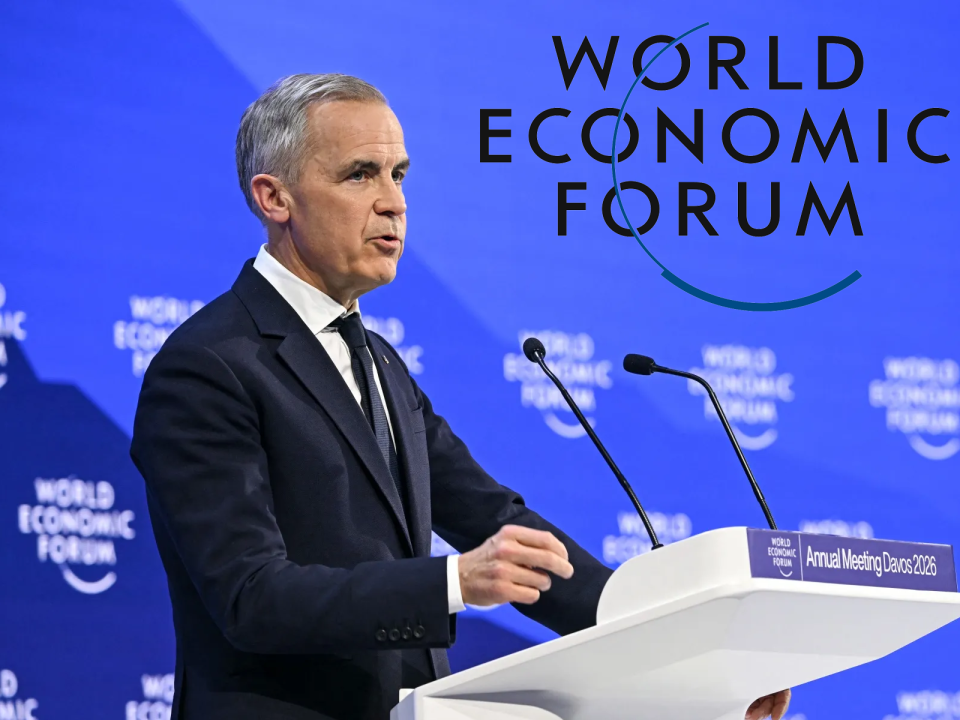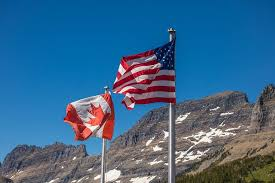
In June, Canada commemorates the history, heritage, resilience, and diversity of First Nations, Inuit, and Métis peoples during National Indigenous History Month. INNOVATIVE has been tracking Canadian opinions and attitudes regarding Indigenous issues since 2007. See the most recent research here.
The majority of Canadians (73%) still remember the discovery of unmarked graves at the Kamloops Indian Residential School and remain outraged. Often events seize our attention for a moment and then are forgotten. That is not the case regarding the Kamloops discovery and Canadians views towards the treatment of Indigenous People in Canadian Residential Schools. The results showed that most Canadians have not forgotten the event and still feeling angry.
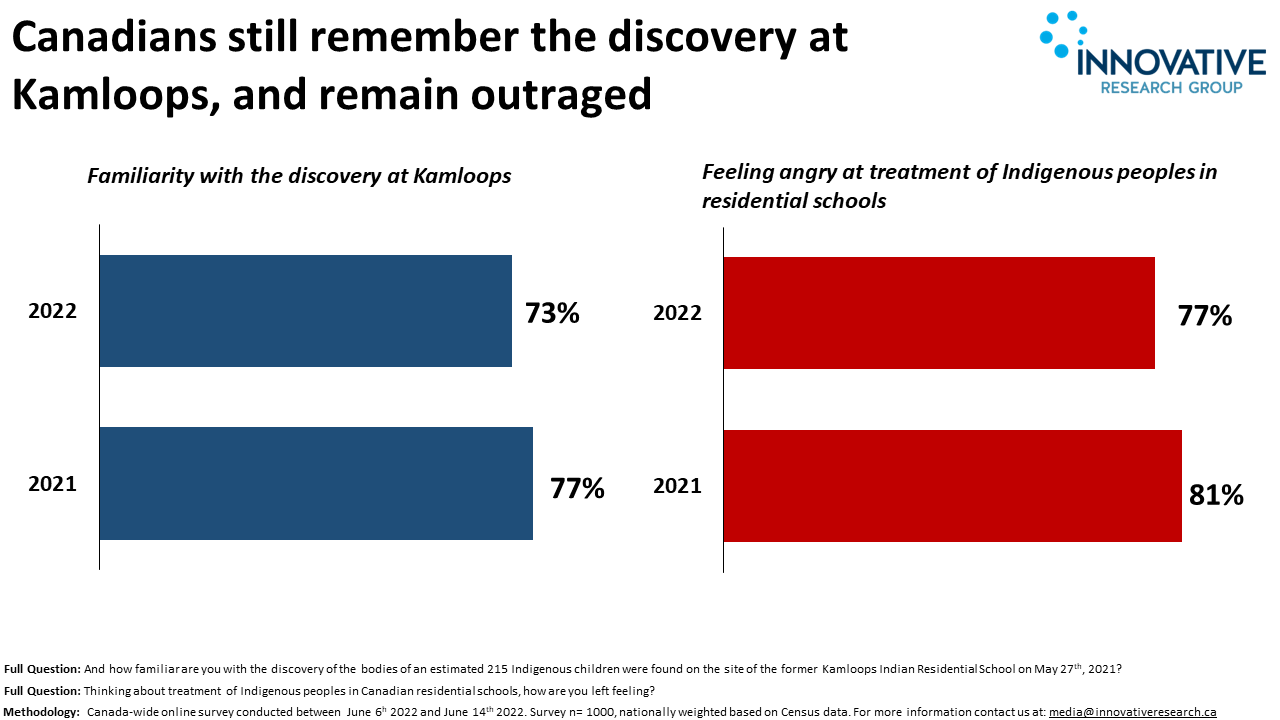
Canadians remain more inclined to perceive a moral obligation towards Indigenous peoples. The biggest change last year was a significant increase in agreement with statements that reflected a sense of moral obligation to indigenous peoples. While there has been a slight decrease in net agreement on those items, the bulk of the increase remains.
- 61% agree Canadians have a duty to help resolve the massive inequalities that Indigenous peoples face in Canada (with a +48% net agreement).
- Since governments have failed so badly that it makes sense for Indigenous peoples to take control of their own affairs, according to 50% of respondents (+34% net agreement).
- Fifty percent believe that since Indigenous peoples were here first, they deserve compensation for the injustices they suffered when they lost their lands (with a net agreement of +27%).
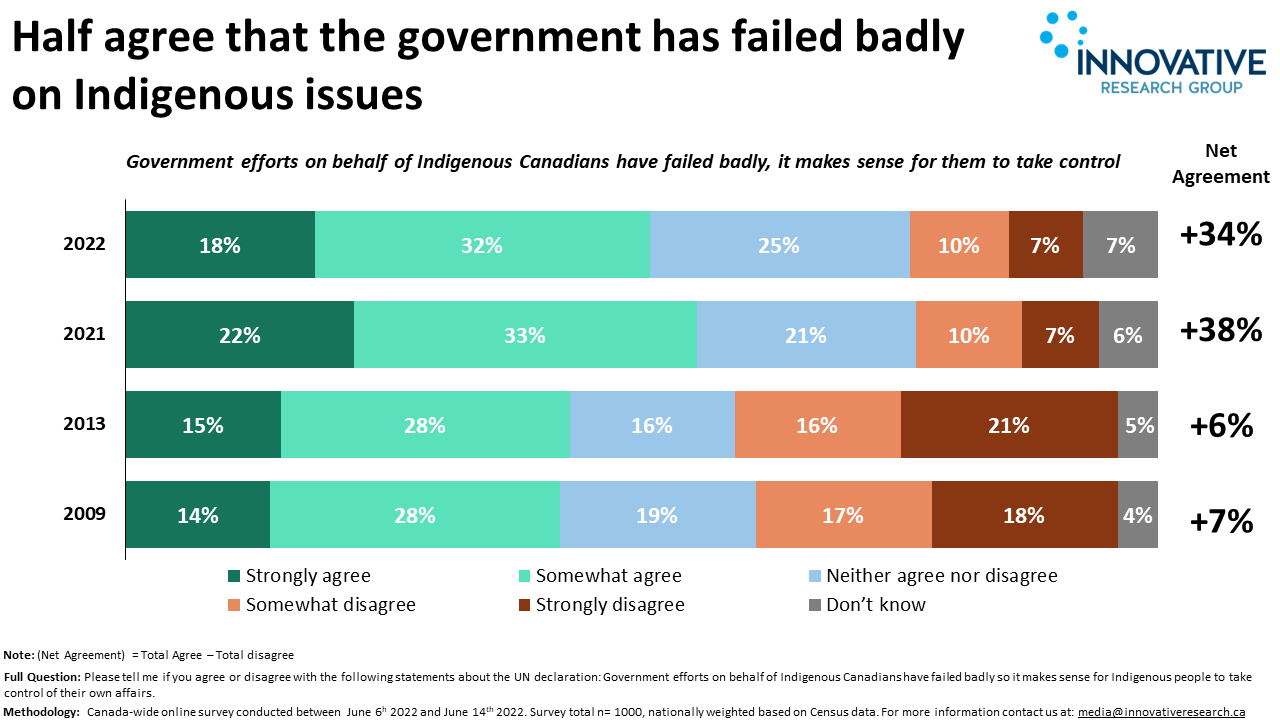
The general standing of organisations representing Indigenous peoples continues to improve. Year after year, INNOVATIVE has observed a steady increase of approving numbers for indigenous organizations who are making stronger strides toward establishing a positive impression among Canadians (46%).
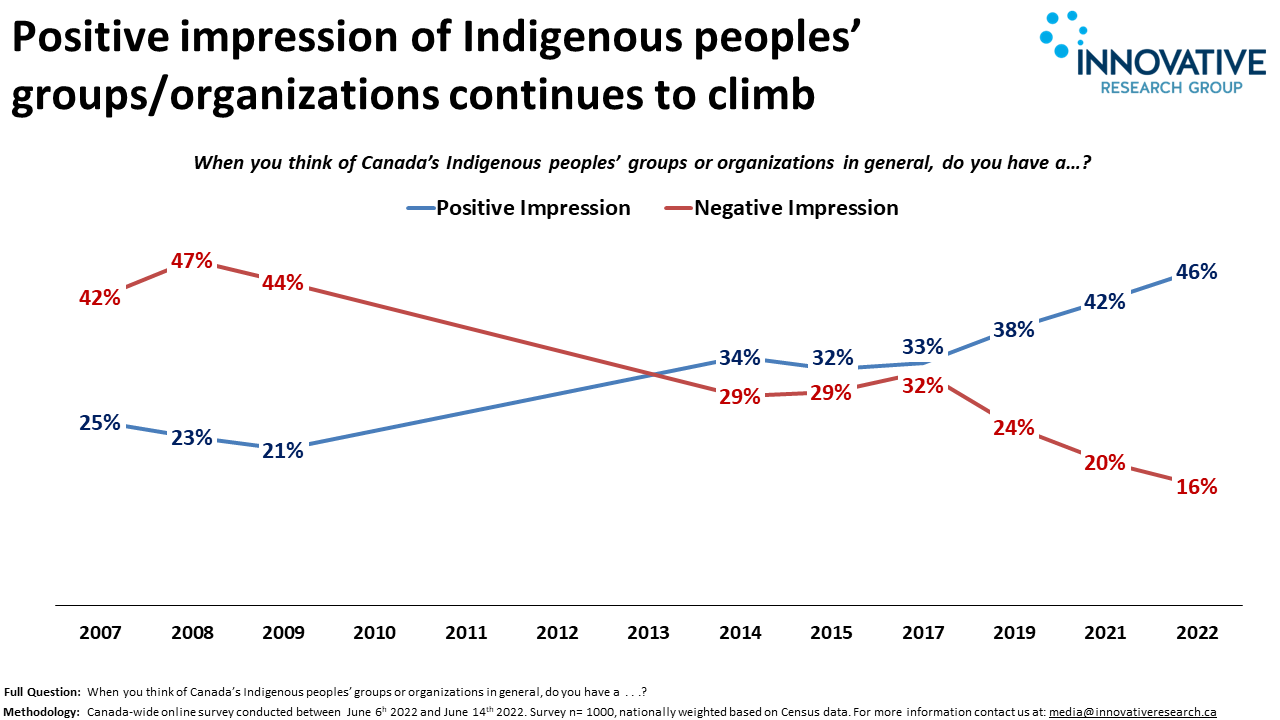
Canadians (48%) are more likely to approve the idea that Indigenous peoples may need more rights to protect their culture and heritage. This is a notable change from more than a decade ago, when Canadians were more inclined to oppose the notion that Indigenous peoples should have the rights and status necessary to protect their culture and heritage, even if it means they may have some privileges that other Canadians do not. This might come as a result of the discovery of unmarked graves at the Kamloops Indian Residential School, as public opinion shift from more people disagreeing than agreeing in 2007 to more people agreeing than disagreeing beginning in 2021.
Despite the growing sense of moral obligation, remaining outrage, and government disapproval on handling of indigenous issues, Canadians are having conflicted views:
- Two thirds of Canadians (68%) believe Indigenous peoples should have the same rights as any other Canadian.
- Four in ten Canadians are concerned about the economic impacts of Indigenous rights with pluralities agreeing they are concerned about a potential Indigenous veto slowing down development and worried Indigenous approval rights will threaten jobs in my community.
While underlying attitudes are more favourable towards Indigenous peoples, Indigenous issues are dropping of the radar screen. Only one-third of Canadians have lately read/seen/heard about Indigenous peoples. The percentage of respondents who regard indigenous concerns to be a top priority on the political agenda has decreased by seven points since 2021, while topics like as the cost of living, healthcare, and the environment have risen to the top.
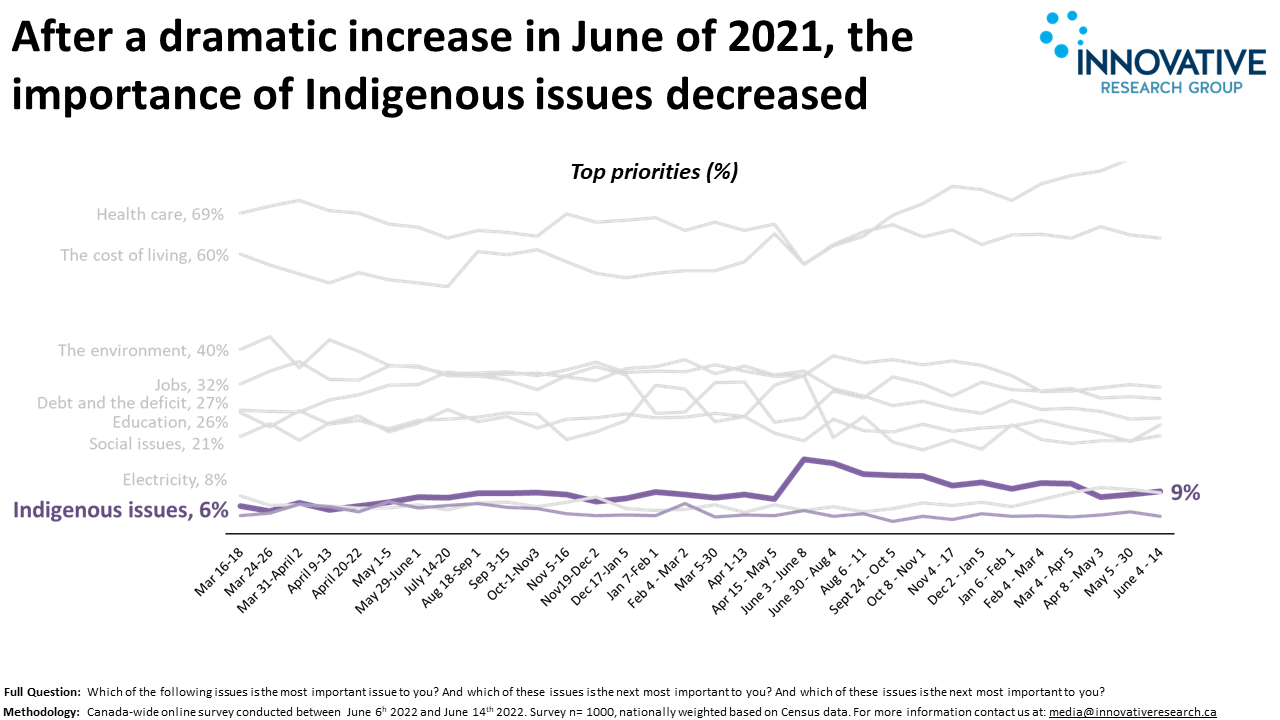
More people disapprove than approve of the job the federal and provincial government’s have been doing on Indigenous peoples’ issues. Less than one-quarter of Canadians (23 percent) approve of the Federal government’s performance on Indigenous matters. The same number of Canadians (23 percent) approve of their provincial government’s performance on Indigenous matters. The next time indigenous peak on the issue agenda, government will find themselves in a precarious position.

